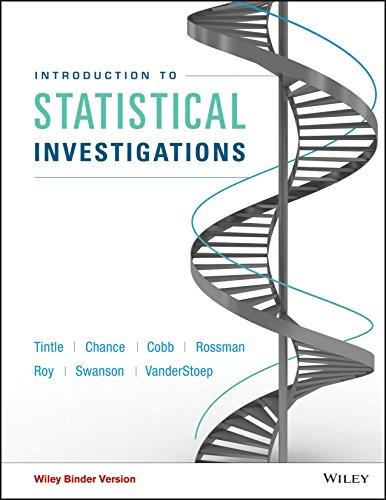Do people tend to spend money differently based on perceived changes in wealth? In a study conducted
Question:
Do people tend to spend money differently based on perceived changes in wealth? In a study conducted by researchers Epley et al. (2006), 47 Harvard undergraduates were randomly assigned to receive either a bonus check of $50 or a rebate check of $50. A week later, each student was contacted and asked whether they had spent any of that money, and if yes, how much. In this exercise we will focus on whether or not they had spent any of that money as the response variable of interest. It turned out that 36% of those in the bonus group spent none of the money, compared to 73% in the rebate group.
a. Identify the observational units.
b. Identify the explanatory variable. Is it categorical or quantitative?
c. Recall that in this exercise our response variable of interest is whether or not each student had spent any of the money given to him or her. Is the response variable categorical or quantitative?
d. State the appropriate null and alternative hypotheses in the context of the study.
Step by Step Answer:

Introduction To Statistical Investigations
ISBN: 9781118172148
1st Edition
Authors: Beth L.Chance, George W.Cobb, Allan J.Rossman Nathan Tintle, Todd Swanson Soma Roy





